
Xiaomi, a known consumer electronics giant, has ventured into the automotive industry, launching its first electric vehicle (EV), SU7, in China. The EV is offered in three variants and is available in 29 cities across China, with deliveries planned to begin at the end of April. An entry into this sector signifies a noteworthy phase in Xiaomi's business evolution.
 The premier event of the SU7 EV was graced by multiple significant personalities, including CEO of Xiaomi, Lei Jun, along with the leaders of rival firms such as Xpeng, Nio, and Li Auto. The presence of Chris Bangle, a previous Chief of Design at the BMW Group, in the current auto design consultant role for Xiaomi, also added weight to the event. The design and development team for the Xiaomi SU7 EV also included veteran industry executives like Li Tianyuan from BMW and James Qiu from Mercedes-Benz.
Boasting a length of 4,997 mm, a width of 1,963 mm and a height of 1,455 mm, the Xiaomi SU7 EV stands out for its impressive road appearance. The vehicle dwarfs the Tesla Model 3 across all dimensions, offering a larger wheelbase and significantly more storage space.
The premier event of the SU7 EV was graced by multiple significant personalities, including CEO of Xiaomi, Lei Jun, along with the leaders of rival firms such as Xpeng, Nio, and Li Auto. The presence of Chris Bangle, a previous Chief of Design at the BMW Group, in the current auto design consultant role for Xiaomi, also added weight to the event. The design and development team for the Xiaomi SU7 EV also included veteran industry executives like Li Tianyuan from BMW and James Qiu from Mercedes-Benz.
Boasting a length of 4,997 mm, a width of 1,963 mm and a height of 1,455 mm, the Xiaomi SU7 EV stands out for its impressive road appearance. The vehicle dwarfs the Tesla Model 3 across all dimensions, offering a larger wheelbase and significantly more storage space.
 Customers can select from the Standard, Pro, and Max Performance editions of the Xiaomi SU7 EV. The Standard version includes a 73.6 kWh BYD’s LFP Blade battery and an RWD format, enabling a maximum power of 295 hp and peak torque of 400 Nm. This variant is priced modestly at 215,900 yuan (Rs 24.92 lakh).
The Pro model of the Xiaomi SU7 offers a higher range at 830 km and comes equipped with a 94.3 kWh CATL Shenxing battery while maintaining the same specifications as the Standard model. It is available for 245,900 yuan (around Rs 28.38 lakh).
Customers can select from the Standard, Pro, and Max Performance editions of the Xiaomi SU7 EV. The Standard version includes a 73.6 kWh BYD’s LFP Blade battery and an RWD format, enabling a maximum power of 295 hp and peak torque of 400 Nm. This variant is priced modestly at 215,900 yuan (Rs 24.92 lakh).
The Pro model of the Xiaomi SU7 offers a higher range at 830 km and comes equipped with a 94.3 kWh CATL Shenxing battery while maintaining the same specifications as the Standard model. It is available for 245,900 yuan (around Rs 28.38 lakh).
 The top-end Max Performance variant features a dual-motor setup, delivering an output of 663 hp and 838 Nm with a 101 kWh CATL Qilin (NMC) battery. It offers a range of 800 km and a top speed of 265 km/H. The price for this model stands at 299,900 yuan (around Rs 34.61 lakh).
Given the competitive features and its pricing advantage over Tesla Model 3 by approximately 4,100 USD, the Xiaomi SU7 EV garnered an overwhelming response. Within just 27 minutes, the booking count crossed a remarkable 50,000 units. Consequently, the vehicle's launch has already been labeled as a blockbuster success. In China, it's poised to compete against other popular models, including BYD Seal, BYD Han, Xpeng P7i, Deepal SL03, and Nio ET5.
In China's EV market, the SU7 is expected to be a key challenger to Tesla's Model 3, marking the beginning of an exciting new era for Xiaomi and the Chinese automotive industry.
Image Source
The top-end Max Performance variant features a dual-motor setup, delivering an output of 663 hp and 838 Nm with a 101 kWh CATL Qilin (NMC) battery. It offers a range of 800 km and a top speed of 265 km/H. The price for this model stands at 299,900 yuan (around Rs 34.61 lakh).
Given the competitive features and its pricing advantage over Tesla Model 3 by approximately 4,100 USD, the Xiaomi SU7 EV garnered an overwhelming response. Within just 27 minutes, the booking count crossed a remarkable 50,000 units. Consequently, the vehicle's launch has already been labeled as a blockbuster success. In China, it's poised to compete against other popular models, including BYD Seal, BYD Han, Xpeng P7i, Deepal SL03, and Nio ET5.
In China's EV market, the SU7 is expected to be a key challenger to Tesla's Model 3, marking the beginning of an exciting new era for Xiaomi and the Chinese automotive industry.
Image Source
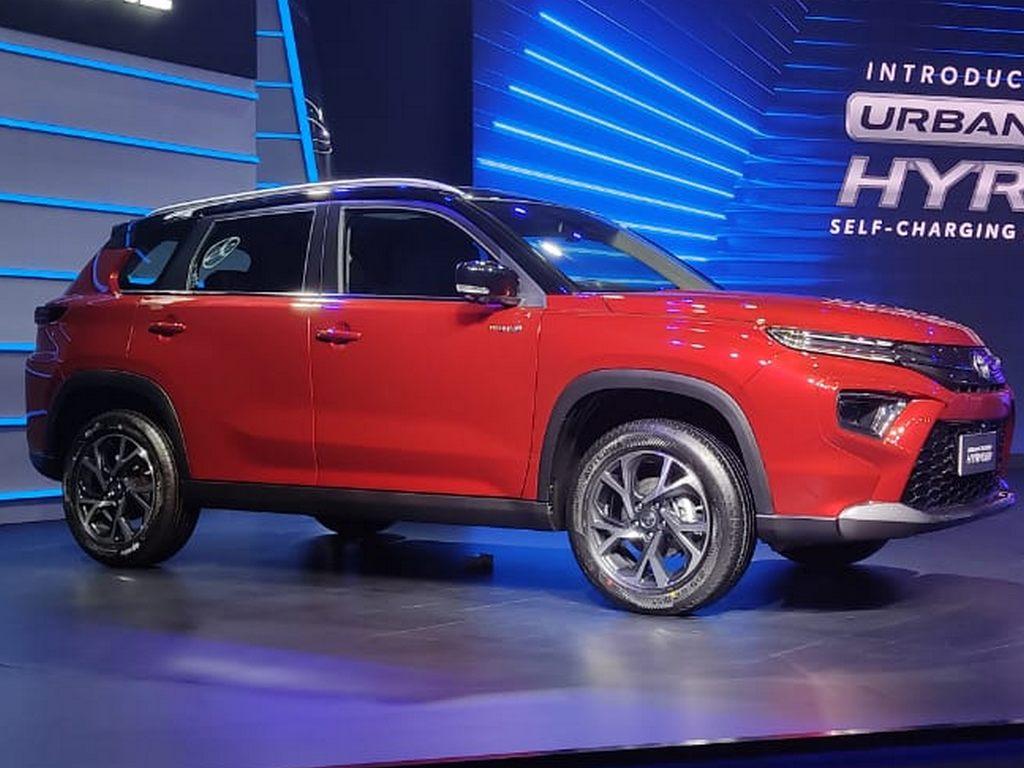
Introduction to the Prestige Package
 Toyota Kirloskar Motor (TKM) has introduced a limited-time accessory bundle for the Urban Cruiser Hyryder, named the 'Prestige Package'. This package aims to enhance the SUV's road presence and premium appeal with a curated set of 10 dealer-fitted accessories. Available at Toyota dealerships starting July 2025, the Prestige Package is designed to elevate the Hyryder's urban styling while offering added protection and durability for daily usage.
Components of the Prestige Package
Toyota Kirloskar Motor (TKM) has introduced a limited-time accessory bundle for the Urban Cruiser Hyryder, named the 'Prestige Package'. This package aims to enhance the SUV's road presence and premium appeal with a curated set of 10 dealer-fitted accessories. Available at Toyota dealerships starting July 2025, the Prestige Package is designed to elevate the Hyryder's urban styling while offering added protection and durability for daily usage.
Components of the Prestige Package
 The Prestige Package includes the following accessories:
Door Visor with Stainless Steel Insert: Adds a sleek look while protecting the windows from rain.
Hood Emblem: Enhances the front profile with a distinctive emblem.
Rear Door Lid Garnish: Provides a polished finish to the rear door area.
Fender Garnish: Adds a sporty touch to the wheel arches.
Body Cladding: Protects the lower body panels from scratches and dings.
Front Bumper Garnish: Gives the front bumper a more aggressive appearance.
Headlamp Garnish: Accentuates the headlamps for a more dynamic look.
Rear Bumper Garnish: Complements the rear bumper with a stylish finish.
Rear Lamp Garnish (Chrome): Adds a touch of elegance to the rear lamps.
Back Door Garnish: Enhances the rear door with a refined accent.
Each component has been thoughtfully selected to amplify the Hyryder’s urban styling while also offering added protection and durability for daily usage.
Hybrid Powertrain Options
The Prestige Package includes the following accessories:
Door Visor with Stainless Steel Insert: Adds a sleek look while protecting the windows from rain.
Hood Emblem: Enhances the front profile with a distinctive emblem.
Rear Door Lid Garnish: Provides a polished finish to the rear door area.
Fender Garnish: Adds a sporty touch to the wheel arches.
Body Cladding: Protects the lower body panels from scratches and dings.
Front Bumper Garnish: Gives the front bumper a more aggressive appearance.
Headlamp Garnish: Accentuates the headlamps for a more dynamic look.
Rear Bumper Garnish: Complements the rear bumper with a stylish finish.
Rear Lamp Garnish (Chrome): Adds a touch of elegance to the rear lamps.
Back Door Garnish: Enhances the rear door with a refined accent.
Each component has been thoughtfully selected to amplify the Hyryder’s urban styling while also offering added protection and durability for daily usage.
Hybrid Powertrain Options
 The Urban Cruiser Hyryder continues to offer a range of powertrain options:
Strong Hybrid: Combines Toyota’s 1.5-litre TNGA Atkinson cycle petrol engine with an advanced electric motor, delivering optimal power, fuel efficiency, and near-silent operation.
Neo Drive (Mild-Hybrid): Powered by Suzuki’s 1.5L K-series engine, available with both manual and automatic transmissions.
All-Wheel Drive (AWD): Select trims are equipped with an intelligent AWD system for enhanced versatility.
These powertrain options cater to a variety of driving preferences and needs, ensuring that the Hyryder remains a versatile choice in the B-SUV segment.
Pricing and Availability
The Prestige Package is available exclusively through Toyota dealerships starting July 2025. Pricing details can be obtained directly from the dealerships, and installation is handled by authorized service centers to ensure quality and warranty compliance.
Conclusion
The Toyota Urban Cruiser Hyryder Prestige Package offers an excellent opportunity for owners to personalize their hybrid SUV with premium accessories that enhance both style and functionality. With its comprehensive range of features and thoughtful design, the Prestige Package is a valuable addition for those looking to elevate their driving experience.
The Urban Cruiser Hyryder continues to offer a range of powertrain options:
Strong Hybrid: Combines Toyota’s 1.5-litre TNGA Atkinson cycle petrol engine with an advanced electric motor, delivering optimal power, fuel efficiency, and near-silent operation.
Neo Drive (Mild-Hybrid): Powered by Suzuki’s 1.5L K-series engine, available with both manual and automatic transmissions.
All-Wheel Drive (AWD): Select trims are equipped with an intelligent AWD system for enhanced versatility.
These powertrain options cater to a variety of driving preferences and needs, ensuring that the Hyryder remains a versatile choice in the B-SUV segment.
Pricing and Availability
The Prestige Package is available exclusively through Toyota dealerships starting July 2025. Pricing details can be obtained directly from the dealerships, and installation is handled by authorized service centers to ensure quality and warranty compliance.
Conclusion
The Toyota Urban Cruiser Hyryder Prestige Package offers an excellent opportunity for owners to personalize their hybrid SUV with premium accessories that enhance both style and functionality. With its comprehensive range of features and thoughtful design, the Prestige Package is a valuable addition for those looking to elevate their driving experience.
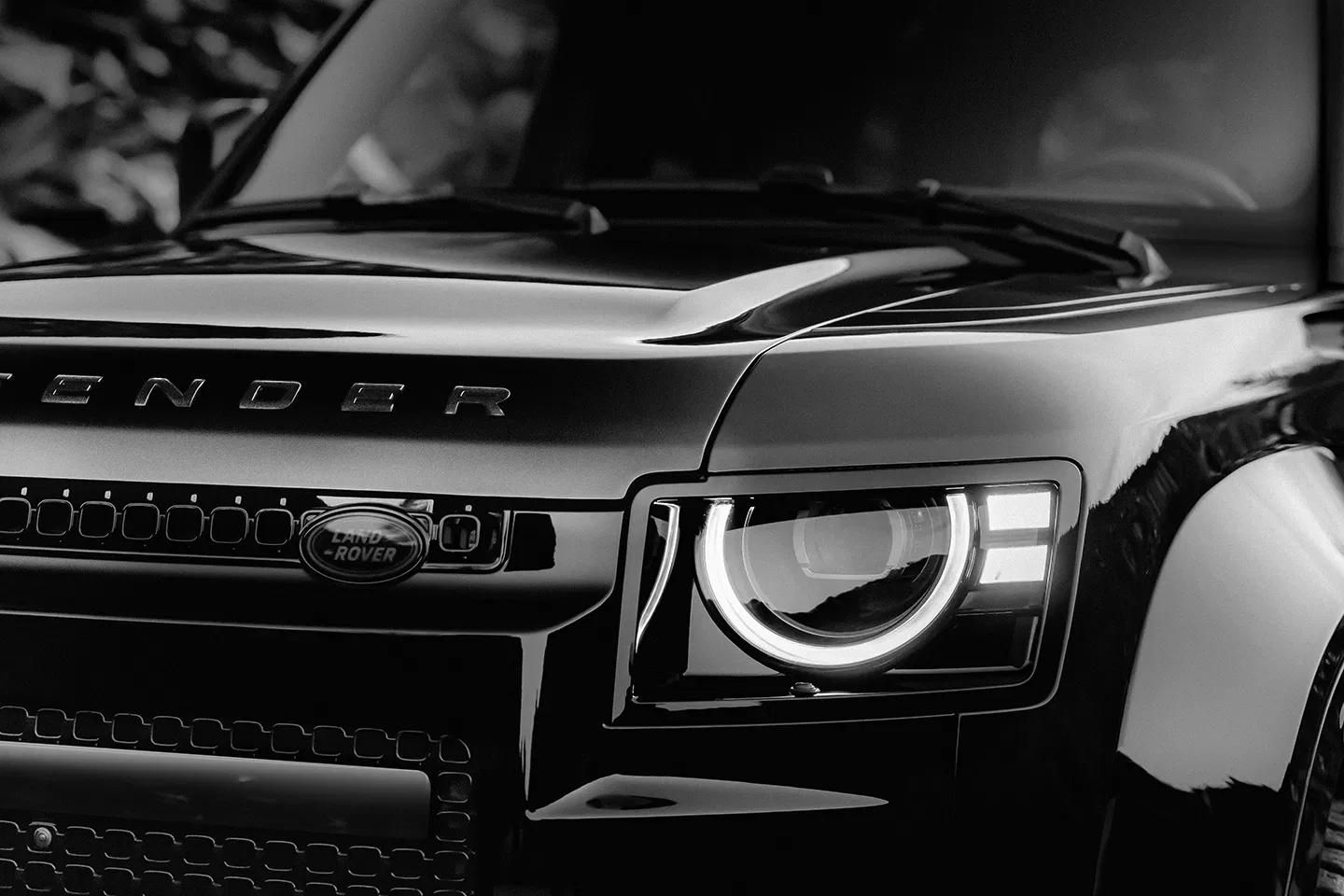
A Bold New Look
 The Defender OCTA Black takes the iconic Defender to new heights with a striking all-black aesthetic. Land Rover has blacked out over 30 exterior elements, including scuff plates, underbody protection, exhaust tips, brake calipers, and the Land Rover oval. The exterior is finished in Narvik Black, described as 'the truest black' in the palette, with options for Gloss and Satin finishes. The 20-inch forged or 22-inch wheels complete the aggressive look, with Sentient Silver accents on the brake calipers.
Performance and Engineering
The Defender OCTA Black takes the iconic Defender to new heights with a striking all-black aesthetic. Land Rover has blacked out over 30 exterior elements, including scuff plates, underbody protection, exhaust tips, brake calipers, and the Land Rover oval. The exterior is finished in Narvik Black, described as 'the truest black' in the palette, with options for Gloss and Satin finishes. The 20-inch forged or 22-inch wheels complete the aggressive look, with Sentient Silver accents on the brake calipers.
Performance and Engineering
 Under the hood, the Defender OCTA Black boasts a 4.4-liter twin-turbo V8 engine, delivering 635hp and 553 lb-ft of torque (590 lb-ft with launch control). Paired with an 8-speed automatic transmission and all-wheel drive, it accelerates from 0-62mph in just 4.0 seconds. The vehicle features the 6D Dynamics air suspension system, offering enhanced wheel articulation and reduced body roll, making it the tallest and widest Defender to date. With a ground clearance of 323mm and a wading depth of 1 meter, it's built to tackle the most challenging terrains.
Luxurious Interior
Under the hood, the Defender OCTA Black boasts a 4.4-liter twin-turbo V8 engine, delivering 635hp and 553 lb-ft of torque (590 lb-ft with launch control). Paired with an 8-speed automatic transmission and all-wheel drive, it accelerates from 0-62mph in just 4.0 seconds. The vehicle features the 6D Dynamics air suspension system, offering enhanced wheel articulation and reduced body roll, making it the tallest and widest Defender to date. With a ground clearance of 323mm and a wading depth of 1 meter, it's built to tackle the most challenging terrains.
Luxurious Interior
 Inside, the Defender OCTA Black redefines luxury with new Semi-Aniline Leather seats and Kvadrat textile inserts from Denmark. The Performance Seats feature unique patterns and stitching, with Carpathian Grey seat backs. Optional chopped carbon accents are available, adding a touch of modern sophistication. The interior combines rugged durability with refined comfort, ensuring an exceptional driving experience.
Pricing and Availability
Inside, the Defender OCTA Black redefines luxury with new Semi-Aniline Leather seats and Kvadrat textile inserts from Denmark. The Performance Seats feature unique patterns and stitching, with Carpathian Grey seat backs. Optional chopped carbon accents are available, adding a touch of modern sophistication. The interior combines rugged durability with refined comfort, ensuring an exceptional driving experience.
Pricing and Availability
 The Defender OCTA Black is priced at £158,045, a £10,000 premium over the standard OCTA model. This limited-edition model is available for purchase through Land Rover dealerships. With its blend of performance, luxury, and exclusivity, the Defender OCTA Black stands as the ultimate 4x4 rock star.
Image Source
The Defender OCTA Black is priced at £158,045, a £10,000 premium over the standard OCTA model. This limited-edition model is available for purchase through Land Rover dealerships. With its blend of performance, luxury, and exclusivity, the Defender OCTA Black stands as the ultimate 4x4 rock star.
Image Source
What’s New in the 2025 Bajaj Dominar?
 Bajaj Auto has teased the upcoming updates for the Dominar series, signaling significant enhancements to its flagship motorcycles. The 2025 Dominar models are expected to feature:
New LCD Instrument Console: The Dominar 400 is set to receive the same LCD dot-matrix display seen on the Pulsar NS400Z. This upgrade will replace the existing LCD and the tank-mounted digital strip, offering a more streamlined and modern interface.
Enhanced Riding Modes: The updated Dominar is likely to incorporate multiple riding modes, including Road, Sport, Rain, and Off-Road, similar to those found on the Pulsar NS400Z
Traction Control and ABS Modes: Anticipated features include selectable traction control levels and switchable dual-channel ABS, providing riders with improved control and safety across various riding conditions.
Bluetooth Connectivity: The new instrument console is expected to offer basic Bluetooth connectivity, enabling features like turn-by-turn navigation, call/SMS alerts, and music control
These updates aim to bring the Dominar in line with the latest offerings in the segment, enhancing its appeal to tech-savvy riders.
Mechanical and Design Updates
Bajaj Auto has teased the upcoming updates for the Dominar series, signaling significant enhancements to its flagship motorcycles. The 2025 Dominar models are expected to feature:
New LCD Instrument Console: The Dominar 400 is set to receive the same LCD dot-matrix display seen on the Pulsar NS400Z. This upgrade will replace the existing LCD and the tank-mounted digital strip, offering a more streamlined and modern interface.
Enhanced Riding Modes: The updated Dominar is likely to incorporate multiple riding modes, including Road, Sport, Rain, and Off-Road, similar to those found on the Pulsar NS400Z
Traction Control and ABS Modes: Anticipated features include selectable traction control levels and switchable dual-channel ABS, providing riders with improved control and safety across various riding conditions.
Bluetooth Connectivity: The new instrument console is expected to offer basic Bluetooth connectivity, enabling features like turn-by-turn navigation, call/SMS alerts, and music control
These updates aim to bring the Dominar in line with the latest offerings in the segment, enhancing its appeal to tech-savvy riders.
Mechanical and Design Updates
 While the core 373cc engine is likely to remain unchanged, Bajaj may introduce refinements to comply with the latest emission norms. The Dominar 400's engine currently produces 40hp and 35Nm of torque. The addition of ride-by-wire technology could enable the introduction of different ride modes, further enhancing the riding experience.
The design is expected to retain its muscular stance and touring-friendly ergonomics, with potential updates to color schemes and finishes to keep the model fresh and appealing.
Pricing and Availability
The Dominar 400 is currently priced at ₹2.39 lakh (ex-showroom, Delhi). With the introduction of these updates, a modest price increase of ₹3,000 to ₹5,000 is anticipated. The updated models are expected to be available in red, green, and black color options.
Conclusion
The 2025 Bajaj Dominar updates are poised to enhance the motorcycle's appeal by integrating advanced features and maintaining its reputation for performance and touring comfort. With these enhancements, the Dominar aims to continue competing effectively in the middleweight motorcycle segment.
While the core 373cc engine is likely to remain unchanged, Bajaj may introduce refinements to comply with the latest emission norms. The Dominar 400's engine currently produces 40hp and 35Nm of torque. The addition of ride-by-wire technology could enable the introduction of different ride modes, further enhancing the riding experience.
The design is expected to retain its muscular stance and touring-friendly ergonomics, with potential updates to color schemes and finishes to keep the model fresh and appealing.
Pricing and Availability
The Dominar 400 is currently priced at ₹2.39 lakh (ex-showroom, Delhi). With the introduction of these updates, a modest price increase of ₹3,000 to ₹5,000 is anticipated. The updated models are expected to be available in red, green, and black color options.
Conclusion
The 2025 Bajaj Dominar updates are poised to enhance the motorcycle's appeal by integrating advanced features and maintaining its reputation for performance and touring comfort. With these enhancements, the Dominar aims to continue competing effectively in the middleweight motorcycle segment.
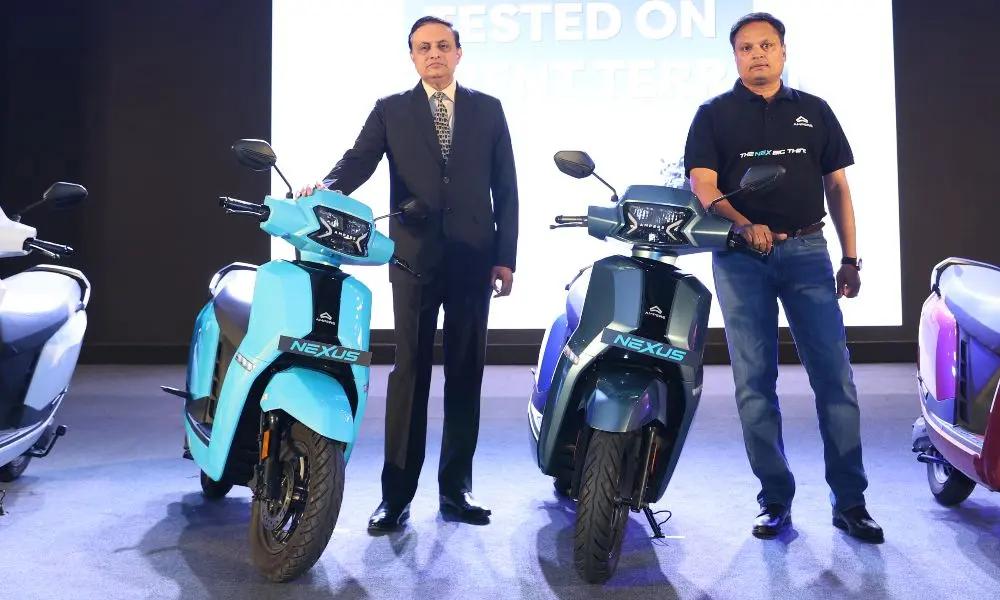
Extended Battery Warranty for the Ampere Nexus
 Ampere has announced an upgraded warranty for its flagship electric scooter, the Nexus. Effective immediately, all variants of the Nexus now come with a standard 5-year or 75,000 km battery warranty, whichever comes first. This move positions the Nexus among the top offerings in the Indian electric two-wheeler market in terms of battery assurance.
Powertrain and Performance
The Ampere Nexus is powered by a 3 kWh lithium iron phosphate (LFP) battery pack, known for its superior thermal stability and safety compared to traditional lithium-ion batteries. The scooter delivers a real-world range of approximately 100 km and boasts a top speed of 93 km/h. Charging the battery to full capacity takes about 3 hours and 22 minutes.
Pricing and Availability
Ampere has announced an upgraded warranty for its flagship electric scooter, the Nexus. Effective immediately, all variants of the Nexus now come with a standard 5-year or 75,000 km battery warranty, whichever comes first. This move positions the Nexus among the top offerings in the Indian electric two-wheeler market in terms of battery assurance.
Powertrain and Performance
The Ampere Nexus is powered by a 3 kWh lithium iron phosphate (LFP) battery pack, known for its superior thermal stability and safety compared to traditional lithium-ion batteries. The scooter delivers a real-world range of approximately 100 km and boasts a top speed of 93 km/h. Charging the battery to full capacity takes about 3 hours and 22 minutes.
Pricing and Availability
 The Ampere Nexus is available in two variants:
EX Variant: ₹1.15 lakh (ex-showroom, Bengaluru)
ST Variant: ₹1.25 lakh (ex-showroom, Bengaluru)
Both variants are offered in four color options: Zanskar Aqua, Lunar White, Indian Red, and Steel Grey. The Nexus is currently available for purchase at various dealerships across India.
Conclusion
With the introduction of a 5-year battery warranty, Ampere demonstrates its commitment to customer satisfaction and product reliability. The Nexus electric scooter continues to stand out in the competitive EV market, offering consumers enhanced peace of mind and a compelling reason to consider it as their next electric two-wheeler
The Ampere Nexus is available in two variants:
EX Variant: ₹1.15 lakh (ex-showroom, Bengaluru)
ST Variant: ₹1.25 lakh (ex-showroom, Bengaluru)
Both variants are offered in four color options: Zanskar Aqua, Lunar White, Indian Red, and Steel Grey. The Nexus is currently available for purchase at various dealerships across India.
Conclusion
With the introduction of a 5-year battery warranty, Ampere demonstrates its commitment to customer satisfaction and product reliability. The Nexus electric scooter continues to stand out in the competitive EV market, offering consumers enhanced peace of mind and a compelling reason to consider it as their next electric two-wheeler
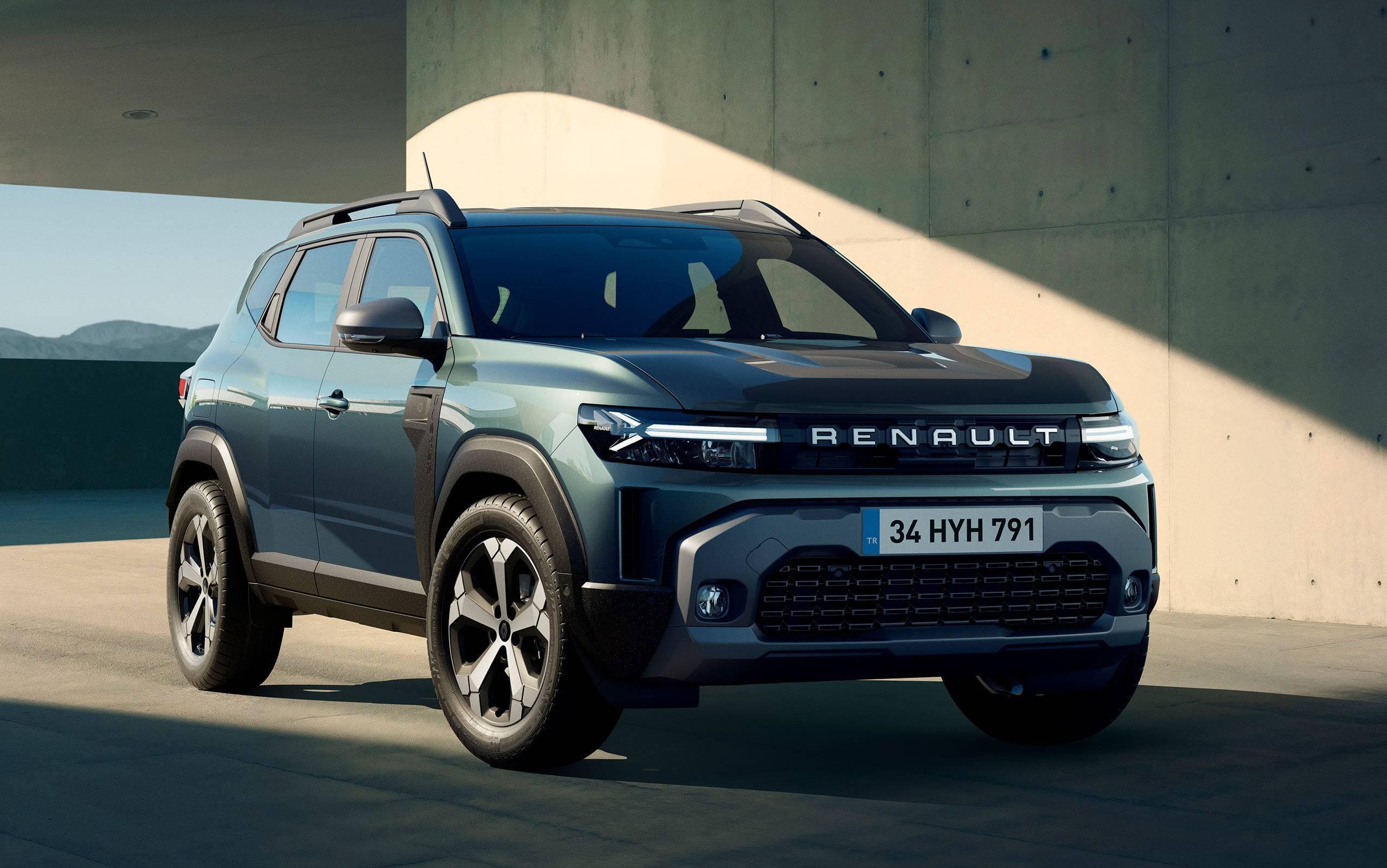
All-Electric Powertrain for the Duster
 Dacia CEO Denis Le Vot has confirmed that the Renault Duster will receive an all-electric powertrain. This move aligns with Renault's strategy to electrify its vehicle lineup in response to the European Union's 2035 ban on new internal combustion engine (ICE) vehicles. The Duster EV will be sold under the Dacia brand in European markets, with a launch expected after the 2027 Sandero EV.
CMF-BEV Platform: Backbone of the Duster EV
The Duster EV will be built on Renault's CMF-BEV platform, the same architecture used for the Renault 5 and 4 crossover models. This platform is designed specifically for electric vehicles, allowing for the integration of both front and rear electric motors. While current models using this platform are front-wheel drive, the Duster EV is expected to offer an all-wheel-drive (AWD) variant, enhancing its off-road capabilities.
Global and Indian Launch Plans
Dacia CEO Denis Le Vot has confirmed that the Renault Duster will receive an all-electric powertrain. This move aligns with Renault's strategy to electrify its vehicle lineup in response to the European Union's 2035 ban on new internal combustion engine (ICE) vehicles. The Duster EV will be sold under the Dacia brand in European markets, with a launch expected after the 2027 Sandero EV.
CMF-BEV Platform: Backbone of the Duster EV
The Duster EV will be built on Renault's CMF-BEV platform, the same architecture used for the Renault 5 and 4 crossover models. This platform is designed specifically for electric vehicles, allowing for the integration of both front and rear electric motors. While current models using this platform are front-wheel drive, the Duster EV is expected to offer an all-wheel-drive (AWD) variant, enhancing its off-road capabilities.
Global and Indian Launch Plans
 The Duster EV is set to be the second Dacia model to adopt an electric powertrain, following the Sandero EV. In India, Renault plans to introduce the Duster in early 2026, with production commencing at the Renault-Nissan plant in Chennai by September 2025. The Indian market will receive both petrol and hybrid variants initially, with the electric version expected to follow in subsequent years
What to Expect from the Duster EV
Powertrain Options: All-electric with potential AWD capability
Platform: Renault's CMF-BEV, supporting both front and rear electric motors
Launch Timeline: European markets post-2027; India launch expected in the early 2030s.
Localisation: High localisation planned for the Indian market to ensure affordability.
The Duster EV is set to be the second Dacia model to adopt an electric powertrain, following the Sandero EV. In India, Renault plans to introduce the Duster in early 2026, with production commencing at the Renault-Nissan plant in Chennai by September 2025. The Indian market will receive both petrol and hybrid variants initially, with the electric version expected to follow in subsequent years
What to Expect from the Duster EV
Powertrain Options: All-electric with potential AWD capability
Platform: Renault's CMF-BEV, supporting both front and rear electric motors
Launch Timeline: European markets post-2027; India launch expected in the early 2030s.
Localisation: High localisation planned for the Indian market to ensure affordability.
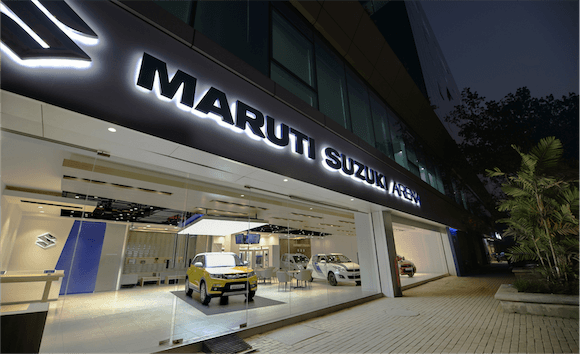
Top Discounts on Maruti Suzuki Nexa Models
 Maruti Suzuki Nexa dealerships across India are offering attractive discounts and benefits on select models for June 2025. These offers include cash discounts, exchange bonuses, scrappage benefits, and extended warranty packages. Please note that discounts may vary by city and dealership. It's advisable to check with your local Nexa dealer for the most accurate information.
Model-Wise Discount Breakdown
Maruti Grand Vitara
MY2024 Strong Hybrid: Up to ₹1.70 lakh in benefits, including a cash discount of ₹70,000, an extended warranty worth ₹35,000, and a scrappage bonus of ₹65,000.
MY2024 Petrol: Up to ₹1.50 lakh in benefits, with Dominion Edition accessories worth ₹41,000 on Delta, Zeta, and Alpha trims.
MY2025 Strong Hybrid: Up to ₹1.30 lakh in benefits.
MY2025 Petrol: Up to ₹1.10 lakh in benefits, including Dominion Edition accessories worth ₹41,000.
MY2024 CNG: ₹20,000 in benefits.
Maruti Invicto
Alpha+ Trim: Up to ₹1.40 lakh in benefits.
Zeta+ Trim: Up to ₹1.15 lakh in benefits
Maruti Jimny
Alpha Trim: Up to ₹70,000 in benefits
Maruti Fronx
Turbo Variants: Up to ₹93,000 in benefits, including a cash discount, exchange/scrappage bonus, and Velocity Edition accessories worth ₹43,000
Petrol Variants: Up to ₹45,000 in benefits.
CNG Variant: ₹15,000 in exchange/scrappage bonuses.
Maruti Ignis
AMT Variants: Up to ₹60,000 in benefits.
Manual Variants: Up to ₹50,000 in benefits.
Maruti Baleno
AMT and CNG Variants: Up to ₹65,000 in benefits.
Delta, Zeta, and Alpha Petrol-Manual Variants: Up to ₹50,000 in benefits.
Sigma Trim: Up to ₹40,000 in benefits.
Maruti Ciaz
All Variants: Up to ₹50,000 in benefits.
Maruti XL6
All Variants: Up to ₹25,000 in benefits.
Important Notes
Offers Validity: These offers are valid throughout June 2025.
Model Year Variations: Discounts may vary based on the model year (2024 or 2025) and variant.
Availability: Offers are subject to stock availability and may vary by city and dealership.
Dealer Confirmation: It's recommended to confirm the exact offers with your local Nexa dealer.
How to Avail These Offers
To take advantage of these exclusive offers:
Visit: Your nearest Maruti Suzuki Nexa dealership.
Inquire: About the specific discounts and benefits available for your preferred model and variant.
Book: Schedule a test drive or place an order to avail the offers
Maruti Suzuki Nexa dealerships across India are offering attractive discounts and benefits on select models for June 2025. These offers include cash discounts, exchange bonuses, scrappage benefits, and extended warranty packages. Please note that discounts may vary by city and dealership. It's advisable to check with your local Nexa dealer for the most accurate information.
Model-Wise Discount Breakdown
Maruti Grand Vitara
MY2024 Strong Hybrid: Up to ₹1.70 lakh in benefits, including a cash discount of ₹70,000, an extended warranty worth ₹35,000, and a scrappage bonus of ₹65,000.
MY2024 Petrol: Up to ₹1.50 lakh in benefits, with Dominion Edition accessories worth ₹41,000 on Delta, Zeta, and Alpha trims.
MY2025 Strong Hybrid: Up to ₹1.30 lakh in benefits.
MY2025 Petrol: Up to ₹1.10 lakh in benefits, including Dominion Edition accessories worth ₹41,000.
MY2024 CNG: ₹20,000 in benefits.
Maruti Invicto
Alpha+ Trim: Up to ₹1.40 lakh in benefits.
Zeta+ Trim: Up to ₹1.15 lakh in benefits
Maruti Jimny
Alpha Trim: Up to ₹70,000 in benefits
Maruti Fronx
Turbo Variants: Up to ₹93,000 in benefits, including a cash discount, exchange/scrappage bonus, and Velocity Edition accessories worth ₹43,000
Petrol Variants: Up to ₹45,000 in benefits.
CNG Variant: ₹15,000 in exchange/scrappage bonuses.
Maruti Ignis
AMT Variants: Up to ₹60,000 in benefits.
Manual Variants: Up to ₹50,000 in benefits.
Maruti Baleno
AMT and CNG Variants: Up to ₹65,000 in benefits.
Delta, Zeta, and Alpha Petrol-Manual Variants: Up to ₹50,000 in benefits.
Sigma Trim: Up to ₹40,000 in benefits.
Maruti Ciaz
All Variants: Up to ₹50,000 in benefits.
Maruti XL6
All Variants: Up to ₹25,000 in benefits.
Important Notes
Offers Validity: These offers are valid throughout June 2025.
Model Year Variations: Discounts may vary based on the model year (2024 or 2025) and variant.
Availability: Offers are subject to stock availability and may vary by city and dealership.
Dealer Confirmation: It's recommended to confirm the exact offers with your local Nexa dealer.
How to Avail These Offers
To take advantage of these exclusive offers:
Visit: Your nearest Maruti Suzuki Nexa dealership.
Inquire: About the specific discounts and benefits available for your preferred model and variant.
Book: Schedule a test drive or place an order to avail the offers

Triumph's Strong Showing at Southwick
 Triumph Factory Racing showcased remarkable performance at Round 5 of the 2025 AMA Pro Motocross Championship held at the iconic Southwick track. Riders Mikkel Haarup and Jordon Smith delivered standout performances, highlighting the team's growing presence in the motocross scene
250MX Class: Triumph's Rising Stars
Mikkel Haarup: Secured a season-best 6th place overall with moto scores of 5-6, demonstrating consistent speed and resilience on the challenging sandy terrain
Jordon Smith: Achieved 10th place overall with moto finishes of 14-7, showcasing determination and skill in the competitive field.
Both riders continue to build momentum, reflecting Triumph's commitment to excellence in the sport.
Triumph TF 250-X: Engineered for Success
Triumph Factory Racing showcased remarkable performance at Round 5 of the 2025 AMA Pro Motocross Championship held at the iconic Southwick track. Riders Mikkel Haarup and Jordon Smith delivered standout performances, highlighting the team's growing presence in the motocross scene
250MX Class: Triumph's Rising Stars
Mikkel Haarup: Secured a season-best 6th place overall with moto scores of 5-6, demonstrating consistent speed and resilience on the challenging sandy terrain
Jordon Smith: Achieved 10th place overall with moto finishes of 14-7, showcasing determination and skill in the competitive field.
Both riders continue to build momentum, reflecting Triumph's commitment to excellence in the sport.
Triumph TF 250-X: Engineered for Success
 The team's performance is bolstered by the advanced Triumph TF 250-X, featuring:
Lightweight Aluminum Chassis: Ensures agility and durability.
KYB Suspension System: Provides superior handling on varied terrains.
Brembo Braking Components: Offers precise control and safety.
These features contribute to the bike's competitive edge in the 250MX class.
Looking Ahead: Triumph's Future in Motocross
The team's performance is bolstered by the advanced Triumph TF 250-X, featuring:
Lightweight Aluminum Chassis: Ensures agility and durability.
KYB Suspension System: Provides superior handling on varied terrains.
Brembo Braking Components: Offers precise control and safety.
These features contribute to the bike's competitive edge in the 250MX class.
Looking Ahead: Triumph's Future in Motocross
 With continued development and rider growth, Triumph Factory Racing is poised to make significant strides in the upcoming rounds of the 2025 AMA Pro Motocross Championship. Fans can anticipate more exciting performances from the team as they aim for podium finishes
Source
With continued development and rider growth, Triumph Factory Racing is poised to make significant strides in the upcoming rounds of the 2025 AMA Pro Motocross Championship. Fans can anticipate more exciting performances from the team as they aim for podium finishes
Source
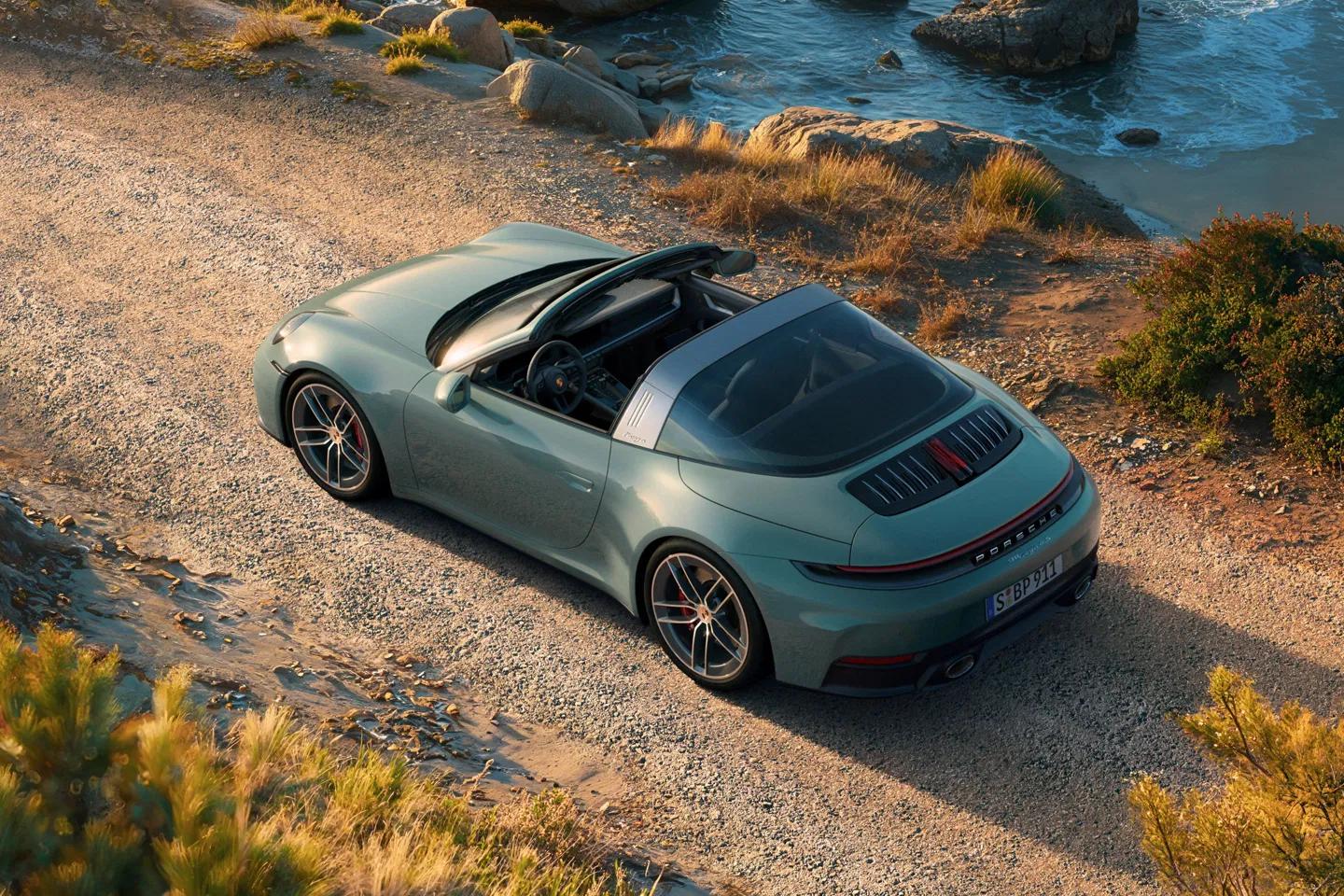
Porsche Introduces New 992 Carrera 4S Range Including Targa Variant
 Porsche has expanded its 992.2 lineup by adding the all‑wheel‑drive Carrera 4S in Coupe, Cabriolet, and Targa versions—bringing the total AWD 911 models to six and filling a gap beneath the GTS series
Performance & Powertrain
Porsche has expanded its 992.2 lineup by adding the all‑wheel‑drive Carrera 4S in Coupe, Cabriolet, and Targa versions—bringing the total AWD 911 models to six and filling a gap beneath the GTS series
Performance & Powertrain
 Powered by a** 3.0 L twin‑turbo f**lat‑six tuned to 473 hp (353 kW) and 390 lb‑ft torque, matching prior Carrera GTS output level with refined intercooling
Equipped with the 8-speed PDK dual-clutch gearbox and a rear‑biased AWD system (PTM) that channels power to all wheels as needed
Acceleration for the coupe with Sport Chrono: ~0–100 km/h in 3.3 s (or 3.1 s by other estimates), with 191 mph (308–310 km/h) top speed as standard
Standard Equipment & Dynamics Enhancements
Powered by a** 3.0 L twin‑turbo f**lat‑six tuned to 473 hp (353 kW) and 390 lb‑ft torque, matching prior Carrera GTS output level with refined intercooling
Equipped with the 8-speed PDK dual-clutch gearbox and a rear‑biased AWD system (PTM) that channels power to all wheels as needed
Acceleration for the coupe with Sport Chrono: ~0–100 km/h in 3.3 s (or 3.1 s by other estimates), with 191 mph (308–310 km/h) top speed as standard
Standard Equipment & Dynamics Enhancements
 Comes with 408 mm front and 380 mm rear discs, Porsche Torque Vectoring Plus, and a sport exhaust system by default—tech previously seen only on GTS cars
Wheels: standard 20-inch front / 21-inch rear staggered set‑ups; rear‑steer is standard on the Targa, optional on other variants .
Upgraded dampers and improved hydraulic setups enhance responsiveness and ride quality over the previous generation
Body Styles & Seating Configurations
Coupe: offers a 2-seat layout by default or optional 2+2 seating at no extra cost
Cabriolet & Targa: standard 4-seater configurations, with Targa offering unique roof mechanics and exclusive rear-steer functionality
Why It Matters
Comes with 408 mm front and 380 mm rear discs, Porsche Torque Vectoring Plus, and a sport exhaust system by default—tech previously seen only on GTS cars
Wheels: standard 20-inch front / 21-inch rear staggered set‑ups; rear‑steer is standard on the Targa, optional on other variants .
Upgraded dampers and improved hydraulic setups enhance responsiveness and ride quality over the previous generation
Body Styles & Seating Configurations
Coupe: offers a 2-seat layout by default or optional 2+2 seating at no extra cost
Cabriolet & Targa: standard 4-seater configurations, with Targa offering unique roof mechanics and exclusive rear-steer functionality
Why It Matters
 Around 50% of Carrera S buyers opt for AWD, especially in regions with variable weather and road surfaces—making this expansion a strategic move
The Carrera 4S variants position themselves neatly between Carrera S and Carrera GTS in Porsche’s hierarchy, bridging dynamic capability and daily usability
Standard sports-grade equipment now expands across broader trims, improving value without stepping into GTS pricing territory
Final Take for CarTopNews
With the 2026 Carrera 4S Coupe, Cabriolet, and Targa, Porsche brings sweet-spot performance with AWD traction, increased standard kit, and greater model variety. It bolsters the 911’s appeal for buyers prioritising daily usability without compromising on character or cornering capability.
Around 50% of Carrera S buyers opt for AWD, especially in regions with variable weather and road surfaces—making this expansion a strategic move
The Carrera 4S variants position themselves neatly between Carrera S and Carrera GTS in Porsche’s hierarchy, bridging dynamic capability and daily usability
Standard sports-grade equipment now expands across broader trims, improving value without stepping into GTS pricing territory
Final Take for CarTopNews
With the 2026 Carrera 4S Coupe, Cabriolet, and Targa, Porsche brings sweet-spot performance with AWD traction, increased standard kit, and greater model variety. It bolsters the 911’s appeal for buyers prioritising daily usability without compromising on character or cornering capability.